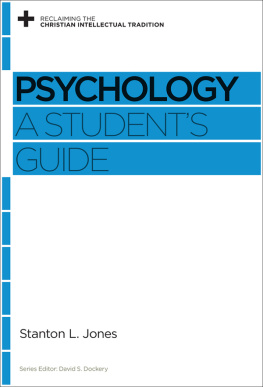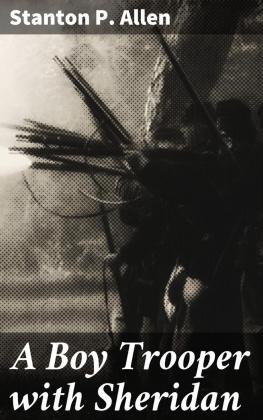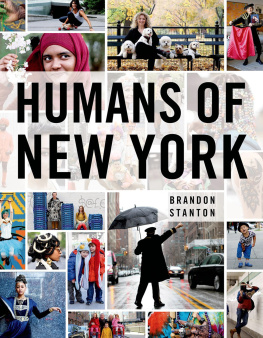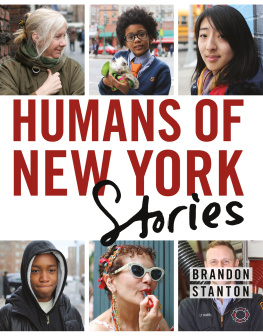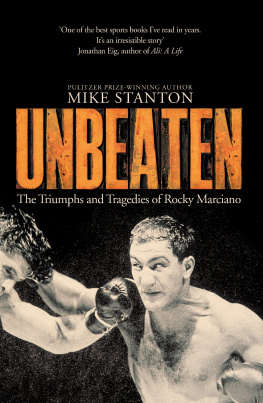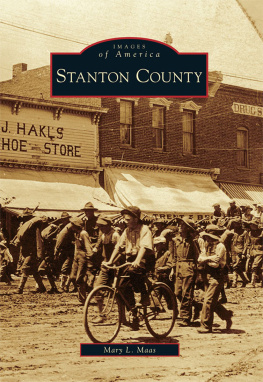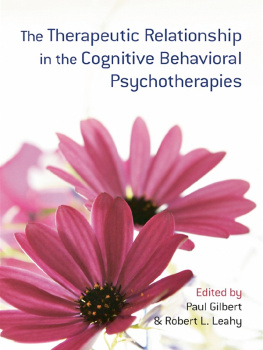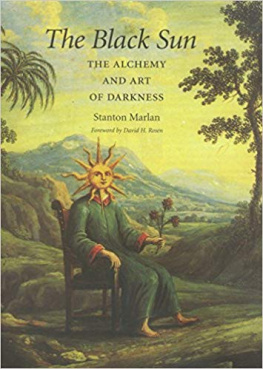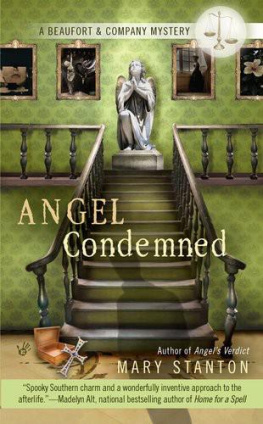Stanton L. Jones - Modern Psychotherapies
Here you can read online Stanton L. Jones - Modern Psychotherapies full text of the book (entire story) in english for free. Download pdf and epub, get meaning, cover and reviews about this ebook. year: 0, genre: Science. Description of the work, (preface) as well as reviews are available. Best literature library LitArk.com created for fans of good reading and offers a wide selection of genres:
Romance novel
Science fiction
Adventure
Detective
Science
History
Home and family
Prose
Art
Politics
Computer
Non-fiction
Religion
Business
Children
Humor
Choose a favorite category and find really read worthwhile books. Enjoy immersion in the world of imagination, feel the emotions of the characters or learn something new for yourself, make an fascinating discovery.

- Book:Modern Psychotherapies
- Author:
- Genre:
- Year:0
- Rating:4 / 5
- Favourites:Add to favourites
- Your mark:
- 80
- 1
- 2
- 3
- 4
- 5
Modern Psychotherapies: summary, description and annotation
We offer to read an annotation, description, summary or preface (depends on what the author of the book "Modern Psychotherapies" wrote himself). If you haven't found the necessary information about the book — write in the comments, we will try to find it.
Modern Psychotherapies — read online for free the complete book (whole text) full work
Below is the text of the book, divided by pages. System saving the place of the last page read, allows you to conveniently read the book "Modern Psychotherapies" online for free, without having to search again every time where you left off. Put a bookmark, and you can go to the page where you finished reading at any time.
Font size:
Interval:
Bookmark:

R eformed Christian thinkers often assert that in pursuing truth, we attempt to think Gods thoughts after him. We cannot be so confident to claim that we are presenting Gods thoughts in this book, but it has been exciting to pursue that goal in this project. As we wrote, we were acutely aware of those who have been friends, conversation partners and mentors to us in some form or another along the paths of our development. In some sense, much of what might be good in all that follows is due to their influencewe have been thinking their thoughts as well as Gods thoughts. What is inadequate in what follows is due to our own weaknesses.
Our acknowledgments in the original version of this book need to be retained, because the basic contours of our thinking as influenced by our friends and collaborators endures in this new, revised edition. Twenty years ago we thanked, and continue to thank, the following individuals: scholars C. Stephen Evans and Alan Tjeltveit, who read the first draft of the first manuscript in its entirety; colleague Michael Mangis, who did the initial draft of the Contemporary Psychodynamic Psychotherapies chapter for us; colleagues Dennis Okholm, Frances J. White, Siang Yang Tan, Robert Roberts, H. Newton Malony, Kirk Farnsworth, Don Bosch, Drew Loizeaux, Brian Van Dragt and Jon Peterson, who offered critiques of individual chapters at various stages of development; our first editors at InterVarsity Press, Michael Maudlin and Rodney Clapp; our secretaries at Wheaton College, Carol Blauwkamp and Geraldine Carlson; and several generations of research assistants including Joel Arp, Karen Crow Blankenship, Rose Buier, David Dodd, Michael Gillis, Kathy Hobson, Todd Keylock, Kathleen Lattea, Stephen Moroney, Grace Ann Robertson, Lauren Strickler, Trudy Walk, Elizabeth Watson, David Wilcox, Don Workman and Chris Zang. Our thanks go out yet again for the gracious hosting twenty years ago of our respective first sabbaticals: for Stan, to the recently deceased Don Browning and the faculty of the University of Chicago Divinity School, and for Rich to H. Newton Malony and the faculty, students and staff of the Graduate School of Psychology at Fuller Theological Seminary.
The passing of twenty years and the completion of a new revision of this volume offers a whole new array of persons and things for which to give thanks. At the broadest level, this book bears the imprint of the marvelous institution at which we work. As we write, the journal First Things, a forum for discussion of the impact of religion in the public sphere, in its November 2010 issue has just declared that Wheaton College in Illinois is the single best place to go to college in America (p. 3). While there is certainly room to challenge their methodology, their rankings of the various colleges in America are based on the confluence of three major variables: academic seriousness, social healthiness, and spiritual and theological integrity and thoughtfulness. Their ideal college would be a place where students are mentored by quality faculty at the forefront of their disciplines, where the campus atmosphere encourages growth into responsibility and maturity rather than degeneration into debauchery, and where resources are offered to facilitate growth in Christlikeness. Such a college environment that is healthy for students is equally healthy for the professionals blessed to serve there. Such is Wheaton College.
Since the first version of this book was completed in 1990, dramatic changes have occurred in the study of psychology at Wheaton College. The department has doubled in size, moving from a department of six undergraduate faculty and three graduate faculty serving undergraduate majors and students pursuing a masters degree in clinical psychology to a department of seventeen individuals serving undergraduate and masters students but also a cadre of students pursuing a doctorate in clinical psychology. The addition of so many capable faculty colleagues has multiplied the riches for conversation and reflection on what it means to be a Christian psychologist.
There have also been personal changes for the two of us. Rich moved long ago from the undergraduate faculty to the graduate faculty, focusing increasingly on the teaching of psychopathology and psychological assessment. Stan, after a too brief, one-year stint as the Rech Chair of Psychology and Christian Faith, moved in 1996 to his current role as provost of Wheaton College. While these transitions have continued to foster our reflections on matters of the relationship of psychology and Christian faith, neither one of our positions have allowed us to continue to teach the survey courses in Christian approaches to psychotherapy that formed the basis of our first version of this book.
Thus, this new revision has become a community project. As we began to consider revision of this book, it became abundantly clear that we needed to reach out for help to the extraordinary community of scholars around us who are teaching these different psychotherapy approaches to tap their rich integrated understandings of the various approaches. As is noted in the list of authorship on the table of contents, each colleague took one of our original chapters and revised and updated it. This eventually led to a substantial reorganization of the material of the book. We also added a new chapter on community psychology to broaden our understandings beyond the typical dyadic counselor-client relationship to see broader possibilities for constructive change using the tools of psychology. Our heartfelt thanks go out to our coauthors for their friendship, their expertise and their patience during the long revision process.
Portions of chapter one in the current volume are based on S. L. Jones (2010), An Integration View, in E. Johnson (Ed.), Psychology and Christianity: Five views (2nd ed., pp. 101-128), Downers Grove, IL: InterVarsity Press; used by permission. Portions of chapters five and six were originally based on S. Jones (1988), A Religious Critique of Behavior Therapy, in W. Miller and J. Martin (Eds.), Behavior therapy and religion (pp. 139-170), Newbury Park, CA: Sage; used by permission.
Handling the issue of gender in writing is an ever-troublesome matter. We have chosen to use inclusive terms wherever it did not torture the language to do so. In places where it was not stylistically pleasing to use neutered terms, we have attempted to alternate references to females and males. We were not compulsive in the process, so some unintentional inequities may remain, but we hope not.
Stan will be eternally grateful to Brenna, with profound gratitude for her support, love, patience and encouragement; without her this revised book would never have been completed. Thank you for being excellent in all that you do.
Rich would like to express his deep gratitude to both his immediate and extended families that have stood with him in the good timesand in the difficult and challenging times. Recently, this has included his graduate teaching assistants, Tamara Koch and Stalin George, and his clinical colleagues, Tim Brown, Alex Tsang, Sandy Johnston Kruse, Victor Argo, Terri Watson, William Struthers, Gary Burge, Don Kerns and Rob Ribbe. Finally, he wants to acknowledge the support of his mountaineering friends, who have faced together seemingly innumerable changes, losses and transitions over a span of nearly four decades.
Sally Schwer Canning is associate professor of psychology at Wheaton College and a clinical psychologist at Lawndale Christian Health Center.
Kelly S. Flanagan is a child clinical psychologist, and assistant professor of psychology and Psy.D. program director at Wheaton College.
Tracy Lee is a clinical psychologist working in private practice in Columbus, Ohio, specializing in the area of psychological assessment.
Font size:
Interval:
Bookmark:
Similar books «Modern Psychotherapies»
Look at similar books to Modern Psychotherapies. We have selected literature similar in name and meaning in the hope of providing readers with more options to find new, interesting, not yet read works.
Discussion, reviews of the book Modern Psychotherapies and just readers' own opinions. Leave your comments, write what you think about the work, its meaning or the main characters. Specify what exactly you liked and what you didn't like, and why you think so.

